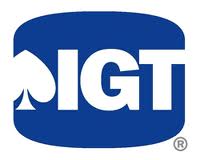 As a result of a falling increase of slot machines over the past decade due to the gaming manufacturing industry facing fewer demands (a cumulative 33% during 1996 to 2006 down to 14% from 2006 to 2011) – North American gaming manufacturers International Game Technology (IGT), WMS Industries (WMS), and Bally Technologies International (BYI) have been compelled to re-evaluate their competitive positions and operational strategies.
As a result of a falling increase of slot machines over the past decade due to the gaming manufacturing industry facing fewer demands (a cumulative 33% during 1996 to 2006 down to 14% from 2006 to 2011) – North American gaming manufacturers International Game Technology (IGT), WMS Industries (WMS), and Bally Technologies International (BYI) have been compelled to re-evaluate their competitive positions and operational strategies.
A recent Stock Strategist Industry Report by the MorningStar has noted that “sluggish consumer discretionary spending” and “an overleveraged client base” has lead to “a fierce headwind for the space”. This has seen one of the biggest gaming machine providers, IGT, making major changes to its long-term strategy. At its 2011 investor conference in New York last month, the game developers announced three major tactical initiatives related to this new “long-term strategy”. The MorningStar’s Stock Strategist Industry Report evaluates the three positive aspects of these proposed projects IGT announced, stating the obstacles that must be resolved before the full potential of these plans can be realised. Here’s an round-up of what the report finds:
- A push into untapped international markets
In its first strategy, IGT is following closely its expansion into untouched landscapes – a plan to provide a more fertile ground for growth in the expansion of gambling in countries that “have an expanding middle class with a greater amount of discretionary income”, those being Macau and Latin America. Definitely the right place to commence expansion, as the company state – they are countries which “set the stage for robust gaming machine growth”. But the strategy report suggests that “many casino patrons’ gambling tastes are vastly different in areas outside of North America”.
IGT is implementing a local strategy – developing software tailored to the local gambler while utilising the existing use of hardware, such as its cabinets, to ensure this strategy is its most beneficial – but the report suggests that “profits could be impaired somewhat on a percentage basis”. It maintains that “the fight over content, cost of gaming development, regulatory expenses, and slow-to-change gambling preferences could provide pressure on the bottom line”.
- A robust build-out of its online gaming infrastructure
IGT is well placed in anticipation of U.S. regulatory approval, producing a well-structured operation where it utilised this infrastructure to serve to other countries where online gaming is legal, such as the UK and Canada. IGT has also ensured it can deliver its non-traditional services on all mobile platforms, including smartphones, tablets, etc across all gaming categories, including poker and sports books. As the strategy report says, IGT’s robust service is encouraging for any company aspiring to become a major player within iGaming.
“We believe IGT’s varied levels of services are very appealing for partners looking to move into the online gaming space. IGT will be one of the best-positioned to reap the rewards,” the report states. Although it does question, however, the timing of government approval in the US. “We believe this process won’t be concluded at least until a few years after the next presidential election,” it adds.
- A new casino floor management system: the “Cloud”
IGT’s cloud service, the SaaS model, was the company’s third and final competitive strategy announced at the investor conference. It allows customers to execute all floor management activities through one server instead of having to install, maintain, and manage a large operating system in-house. In theory, it saves valuable casino floor space, staffing, and equipment costs so should be an excellent value proposition and a more efficient way of delivering casino floor management services.
However, despite the SaaS delivery model’s surprisingly low cost for casino operators, MorningStar’s strategy report believes “some customers are reluctant to cede total control of their casino floors to an offsite technology centre”. The fact that IGT plans to house its SaaS operations in a single centre on the West Coast, is “a proposition that some casino operators may view as having an extra layer of risk.”
The report concludes by suggesting that Bally Technologies is currently a much more “entrenched player in the space” due to the fact that, over a good number of years, we’ve heard more from them regarding systems services.
What are your projections?